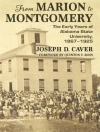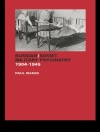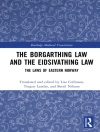The Allied agreement after the Second World War did not only partition Germany, it divided the nation along the fault-lines of a new bipolar world order. This inner border made Germany a unique place to experience the Cold War, and the “German question” in this post-1945 variant remained inextricably entwined with the vicissitudes of the Cold War until its end. This volume explores how social and cultural practices in both German states between 1949 and 1989 were shaped by the existence of this inner border, putting them on opposing sides of the ideological divide between the Western and Eastern blocs, as well as stabilizing relations between them. This volume’s interdisciplinary approach addresses important intersections between history, politics, and culture, offering an important new appraisal of the German experiences of the Cold War.
Mục lục
Acknowledgements
List of Abbreviations
Introduction
Tobias Hochscherf, Christoph Laucht and Andrew Plowman
Chapter 1. Divided, but not Disconnected: Germany as a Border Region of the Cold War
Thomas Lindenberger
Chapter 2. Fighting the First World War in the Cold War: East and West German Historiography on the Origins of the First World War, 1949-61
Matthew Stibbe
Chapter 3. Divided Memory of the Holocaust during the Cold War
Bill Niven
Chapter 4. Commemorating Luther: Contested Memories and the Cold War
Jon Berndt Olsen
Chapter 5. The Third World Origins of the Consensual Turn: West German Labor Internationalism and the Cold War
Quinn Slobodian
Chapter 6. The German Question and Polish-East German Relations, 1945-1962
Sheldon Anderson
Chapter 7. From Bulwark of Peace to Cosmopolitan Cocktails: Marketing West Berlin as a Cold War Showcase from the 1960s to the 1970s
Michelle A. Standley
Chapter 8. Projections of History: East German Film-Makers and the Berlin Wall
Séan Allan
Chapter 9. Defending the Border? Satirical Treatments of the Bundeswehr after the 1960s
Andrew Plowman
Chapter 10. East versus West: Olympic Sport as a German Cold War Phenomenon
Christopher Young
Chapter 11. Glimpses through the Iron Curtain: German Feature Film Import into the G.D.R.
Rosemary Stott
Chapter 12. Visual Representation, the Male Hero, and the Transfer of Images in the Cold War
Inge Marszolek
Chapter 13. Re-enacting the First Battle of the Cold War: Post-Wall German Television Confronts the Berlin Airlift in Die Luftbrücke – Nur der Himmel war frei
Tobias Hochscherf and Christoph Laucht
Chapter 14. Unusual Censor Readings: G.D.R. Science Fiction and the Ministry of Culture
Patrick Major
Chapter 15. Funerals in Berlin: The Geopolitical and Cultural Spaces of the Cold War
James Chapman
Select Bibliography
Notes on Contributors
Index
Giới thiệu về tác giả
Andrew Plowman is Senior Lecturer in German at the University of Liverpool. He is the author of a study on German autobiography and of numerous articles on contemporary German literature. His current research focuses on the cultural representation of the Bundeswehr.












